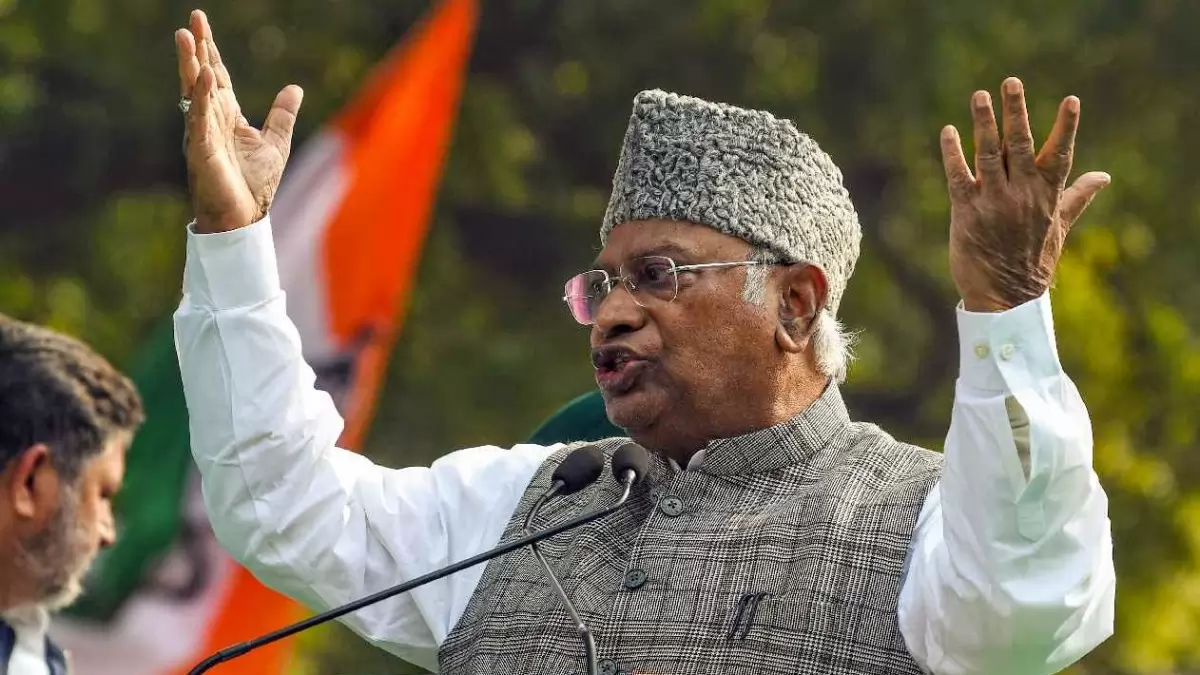
ANI
New Delhi: In a recent exchange of letters, Congress president Mallikarjun Kharge criticised Rajya Sabha Chairman Jagdeep Dhankhar’s communication, characterizing it as an endorsement of the government’s perceived "autocratic" approach to parliamentary proceedings. The crux of this discourse lies in the ongoing deadlock in Parliament, leading to the suspension of 146 opposition MPs.
Kharge vehemently refuted Dhankhar’s assertion that the mass suspension of MPs was a deliberate, "weaponised move orchestrated by the ruling party" to disrupt parliamentary norms. He countered, suggesting that Dhankhar’s depiction of opposition disruption was part of a broader strategy. Kharge emphasised the urgency of moving beyond this impasse but cautioned that discussions within the Chairman’s chambers might not yield a solution unless the government exhibits a commitment to facilitating House proceedings.
Expressing concern, Kharge stated, “If anything, privilege motions have also been weaponised to muzzle the voice of the Opposition.” He perceived this as a purposeful strategy by the ruling dispensation to undermine the very essence of Parliament. According to Kharge, the suspension of MPs is a calculated attempt to silence the collective voice of 146 MPs, representing the diverse opinions of their constituents.
Kharge raised fundamental concerns regarding the suspension, alleging a lack of due consideration and stressing the custodial responsibility of the House in upholding the people’s right to hold the government accountable. He deplored the perceived weaponisation of suspensions, expressing deep-seated worries about the deliberate silencing of opposition voices. This, he argued, undermines democracy and erodes the foundational principles of parliamentary practices.
Kharge went a step further, demanding a statement from Union Home Minister Amit Shah regarding a security breach preceding the suspensions. He pointedly addressed instances where the Home Minister's public statements during a session faced no censure, even with the session in progress. Amidst these exchanges, Kharge urged Dhankhar to impartially examine these concerns in his role as the Chairman of the Rajya Sabha, drawing attention to alleged foreknowledge of the suspensions through a Union minister's communication to an opposition parliamentarian.
In conclusion, the exchange between Kharge and Dhankhar underscores the deep-seated tensions within the parliamentary framework. The demand for accountability, the perceived weaponisation of parliamentary tools, and the need for impartial examination are critical aspects that shape the ongoing discourse.





Copyright © 2025 Top Indian News
